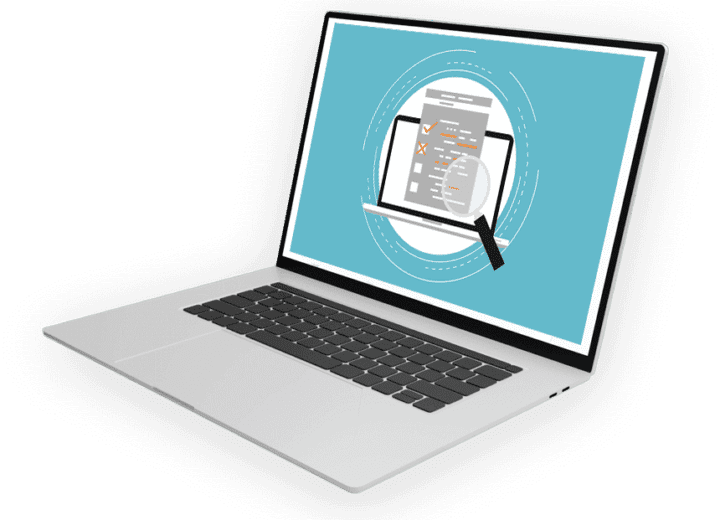As the healthcare industry continues to shift towards value-based care models, revenue cycle management (RCM) optimization is becoming increasingly complex. To optimize RCM optimization for value-based care, healthcare organizations must embrace new payment models. They should focus on quality and outcomes. Additionally, they need to leverage technology solutions that can streamline their RCM processes. In this blog post, we’ll explore some key considerations for success in value-based care. We will also offer strategies for optimizing RCM optimization. This is important in the shifting healthcare landscape. RCM optimization is essential for achieving financial success and improving patient care. RCM optimization plays a vital role in enhancing operational efficiencies and patient satisfaction.
Understanding Value-Based Care
RCM Optimization Strategies for Value-Based Care
RCM optimization is crucial for healthcare organizations aiming to thrive in the value-based care environment.
Value-based care is a payment model that seeks to incentivize healthcare providers to focus on quality and outcomes, rather than the volume of services provided. In this model, healthcare providers are paid based on the quality and effectiveness of the care they provide, rather than on a fee-for-service basis. Value-based care is designed to improve patient outcomes, reduce healthcare costs, and improve the overall quality of care delivered.
- Effective RCM optimization practices enhance financial performance by aligning with value-based care goals.
- Understanding your RCM optimization can lead to better decision-making in patient care financing.
- Incorporating effective RCM optimization strategies can lead to substantial improvements in patient care and financial performance.
Key Considerations for RCM in Value-Based Care

To optimize RCM for value-based care, healthcare organizations must focus on the following key considerations:
RCM optimization must be consistently evaluated to ensure it meets the needs of value-based care.
In the realm of healthcare, effective RCM optimization can significantly impact overall financial health and service delivery.
- Embracing New Payment Models
Integrating RCM optimization into daily operations is crucial for meeting the demands of value-based care.
To succeed in value-based care, healthcare organizations must embrace new payment models, such as bundled payments and pay-for-performance models. These models require a shift in focus from volume-based care to value-based care, and require healthcare providers to take a more collaborative approach to care delivery. By embracing these new payment models, healthcare organizations can improve the quality and efficiency of care delivery, while also optimizing their revenue streams.
- Focusing on Quality and Outcomes
In value-based care, healthcare organizations are incentivized to focus on quality and outcomes, rather than the volume of services provided. This requires healthcare providers to measure and track patient outcomes, and to focus on delivering high-quality care that leads to improved patient health. By focusing on quality and outcomes, healthcare organizations can improve their revenue capture by meeting the requirements of value-based payment models.
By prioritizing RCM optimization, healthcare organizations can enhance their operational efficiency and patient satisfaction.
- Leveraging Technology Solutions
Healthcare organizations that invest in RCM optimization will see a notable improvement in both patient outcomes and financial metrics.
Effective RCM optimization can also reduce administrative burdens and improve cash flow.
Regular updates on RCM optimization progress are vital for maintaining compliance and adapting to new regulations.
Optimizing RCM processes ensures that healthcare organizations are well-prepared for the challenges of value-based payment models.
For optimal results, organizations should continually assess their RCM optimization efforts and make necessary adjustments.
To optimize RCM for value-based care, healthcare organizations must leverage technology solutions that can streamline their RCM processes. This includes solutions such as revenue cycle management software, electronic health records (EHRs), and data analytics tools. These solutions can help organizations capture and manage data more efficiently, improve billing and coding accuracy, and provide valuable insights into revenue cycle performance.
- Partnering with RCM Experts
To succeed in value-based care, healthcare organizations must partner with RCM experts who can provide guidance and support for optimizing RCM processes. These experts can help healthcare organizations identify areas for improvement, recommend technology solutions, and provide ongoing support and optimization services.
Strategies for Optimizing RCM in Value-Based Care

Healthcare organizations should also recognize the importance of RCM optimization in maintaining compliance with evolving regulations.
To optimize RCM for value-based care, healthcare organizations should consider the following strategies:
- Establishing Clear Quality and Outcomes Goals
To succeed in value-based care, healthcare organizations must establish clear quality and outcomes goals that align with their mission and values. By setting clear goals and tracking progress towards those goals, organizations can ensure that they are providing high-quality care that meets the needs of their patients.
- Implementing Technology Solutions
To optimize RCM for value-based care, healthcare organizations must implement technology solutions that can streamline their RCM processes. This includes solutions such as revenue cycle management software, electronic health records, and data analytics tools. These solutions can help organizations capture and manage data more efficiently, improve billing and coding accuracy, and provide valuable insights into revenue cycle performance.
Investing in RCM optimization may require upfront costs but can yield significant long-term financial benefits.
- Providing Ongoing Staff Training
Engaging with RCM experts can provide valuable insights into best practices for RCM optimization.
To succeed in value-based care, healthcare organizations must provide ongoing staff training to ensure that all staff members are familiar with the new payment models, quality metrics, and technology solutions being implemented. This includes training on new EHR systems, coding and billing requirements, and reporting and analytics tools. By providing ongoing training and education, organizations can ensure that all staff members are aligned with their goals and can work together to optimize their RCM processes.
- Engaging Patients in their Care
To succeed in value-based care, healthcare organizations must engage patients in their care and encourage them to take an active role in managing their health. This includes educating patients about their conditions, providing clear and transparent billing statements, and encouraging patients to follow through on treatment plans. By engaging patients in their care, healthcare organizations can improve patient outcomes, reduce bad debt write-offs, and optimize their revenue streams.
- Tracking and Analyzing Key Performance Metrics
To optimize RCM for value-based care, healthcare organizations must track and analyze key performance metrics, such as days in accounts receivable, claim denial rates, and collection rates. By analyzing these metrics, organizations can identify areas for improvement, make data-driven decisions about their RCM strategies, and measure the effectiveness of their performance improvement initiatives.
- Partnering with RCM Experts
Healthcare organizations that prioritize RCM optimization can adapt more easily to the evolving landscape of value-based care.
To succeed in value-based care, healthcare organizations must partner with RCM experts who can provide guidance and support for optimizing RCM processes. These experts can help healthcare organizations identify areas for improvement, recommend technology solutions, and provide ongoing support and optimization services.
Conclusion
As the healthcare industry continues to shift towards value-based care, healthcare organizations must optimize their RCM processes to succeed in this changing landscape. By embracing new payment models, focusing on quality and outcomes, leveraging technology solutions, and partnering with RCM experts, healthcare organizations can optimize their RCM processes and achieve better financial outcomes. RCM optimization is crucial for unlocking potential within healthcare systems. Contact us today to learn more about how our team of experts can help you optimize your RCM processes and achieve success in value-based care.
Discover more from WinFully on Technologies
Subscribe to get the latest posts sent to your email.










